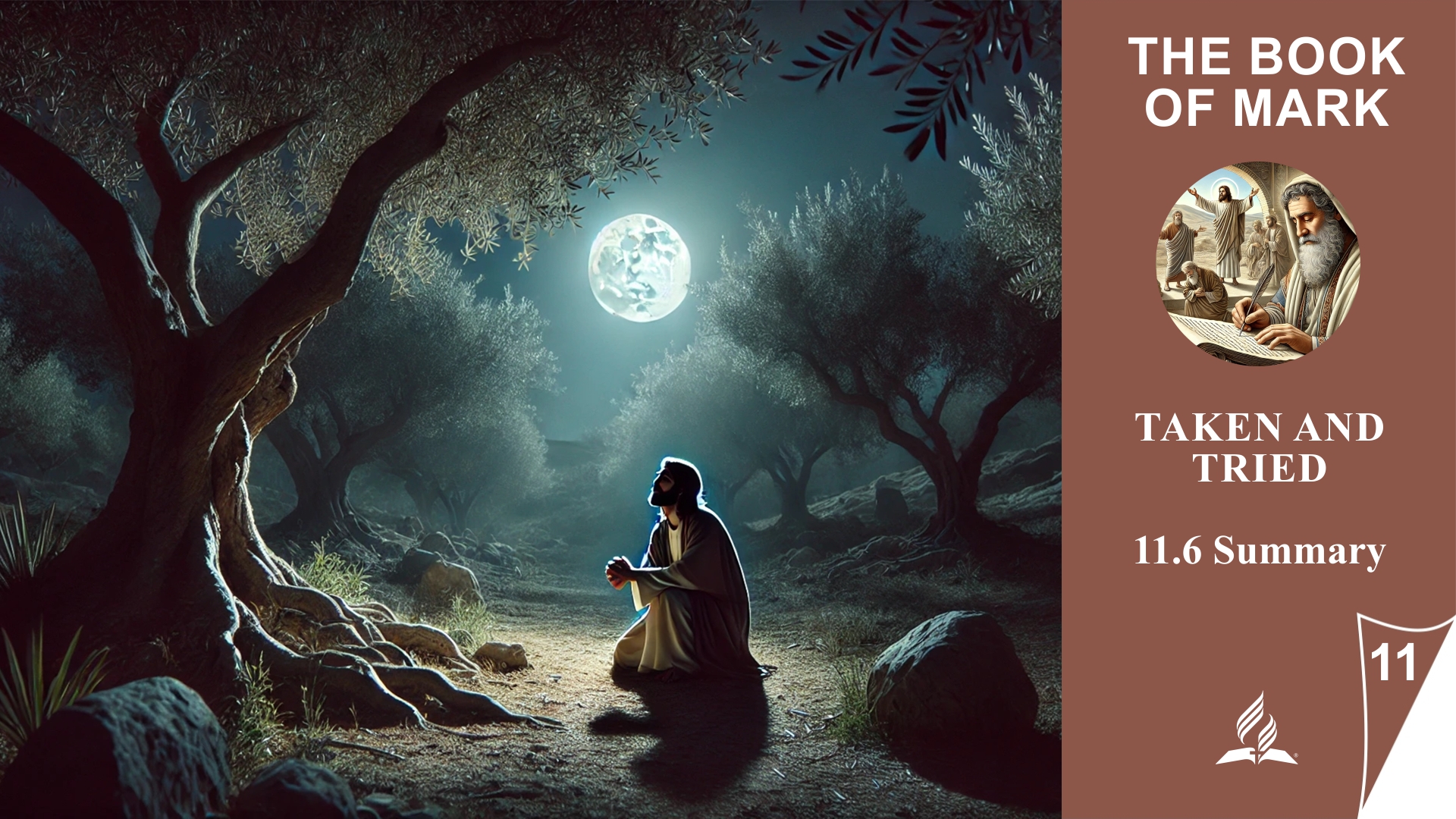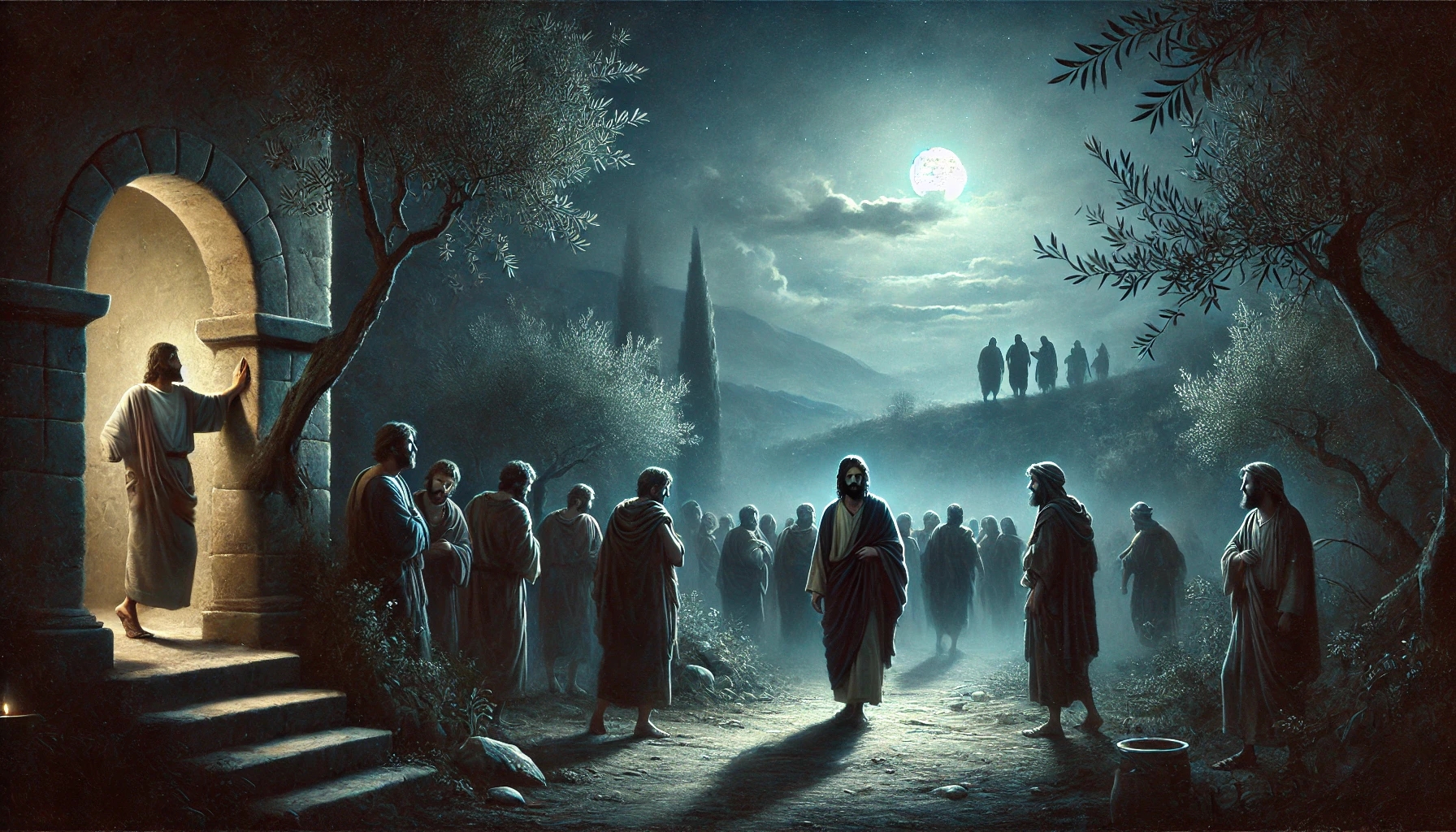


11.6 Summary
Betrayal, Denial, and Steadfastness: Jesus’ Path Before the Court
Lesson 11 addresses the decisive events in the life of Jesus shortly before his crucifixion, illuminating both the emotional and spiritual dimensions of these events. The lesson is divided into several key sections, each providing deeper insights into the challenges and lessons to be learned from the Passion narrative.
11.1 Unforgettable:
The beginning of this lesson reminds us of the unforgettable moments that shaped the course of Jesus’ Passion. These events are not only historical facts but also significant lessons for our own faith life. The memories of these moments serve as a constant reminder of the profound truths and lessons that we will encounter in the following sections.
11.2 The Last Supper:
The Last Supper, which is discussed in this lesson, is a moment of deep significance. Jesus celebrates the Passover with his disciples and establishes the Eucharist as a symbol of his sacrifice. This final meal is not only an act of community but also a solemn proclamation of the new covenant that Jesus will establish through his blood. It demonstrates his love and dedication for humanity, even in the face of the impending suffering.
11.3 Gethsemane:
In the Garden of Gethsemane, we see Jesus in deep fear and sorrow as he prepares for the upcoming suffering. His prayer, “Not my will, but yours be done,” illustrates his willingness to fulfill God’s will, even if it costs him immense pain. This scene shows us the human suffering and spiritual anguish that Jesus experiences and invites us to seek God in prayer and accept His will during times of trial.
11.4 Leaving Everything to Flee from Jesus:
The disciples’ flight after Jesus’ arrest reflects the human tendency to flee in times of danger and uncertainty. The disciples, who had previously declared their steadfastness to Jesus, show a startling fragility as they withdraw in fear and panic. This reaction highlights human weakness and the necessity to remain faithful during times of trial.
11.5 Who Are You?:
In contrast to Jesus’ steadfastness, this section depicts Peter’s denial. While Jesus stands calmly and resolutely before the High Council and confesses his identity, Peter denies his master three times out of fear and uncertainty. This scene reveals the stark contrast between divine constancy and human weakness and teaches us that even our greatest role models can make mistakes. However, Peter’s later remorse shows that there is always room for repentance and forgiveness.
Lesson 11 provides us with a profound insight into the last hours before Jesus’ crucifixion. It shows us how Jesus remains steadfast despite the impending suffering and fulfills God’s will. The human weakness manifested in the disciples’ flight and Peter’s denial is counterbalanced by the message of forgiveness and renewal that we learn in this lesson. These events offer valuable lessons on how we can remain steadfast in our own faith journey, even when faced with our own weaknesses and challenges. The lesson encourages us to hold onto God’s plan in times of need and to accept the grace He offers us through Christ.
The connection between the events in Lesson 11 and our everyday life and faith is profound. It shows us that, similar to the disciples, we can tend to drift away from our faith and convictions in times of fear, uncertainty, or temptation. The lesson reminds us that human weakness is inevitable – as seen in Peter’s denial or the disciples’ flight – but that God’s grace and forgiveness are always ready to receive us when we repent.
In daily life, we often encounter situations where our faith is tested, whether by external pressure, personal challenges, or doubts. Jesus’ steadfastness amid condemnation and suffering inspires us to remain faithful in such times and to seek God’s will, even when it is difficult. At the same time, Peter’s denial and later remorse offer comfort: mistakes are part of our faith journey, but there is always the possibility to repent and be renewed.
This lesson teaches us that, despite our human weaknesses, we can always return to God through His infinite grace and forgiveness to start anew. It encourages us to firmly trust in God’s plan and rely on His love during times of need and trials.

God’s grace triumphs over our weaknesses and always offers us a new chance for repentance and renewal.
Visited 67 times, 1 visit(s) today







